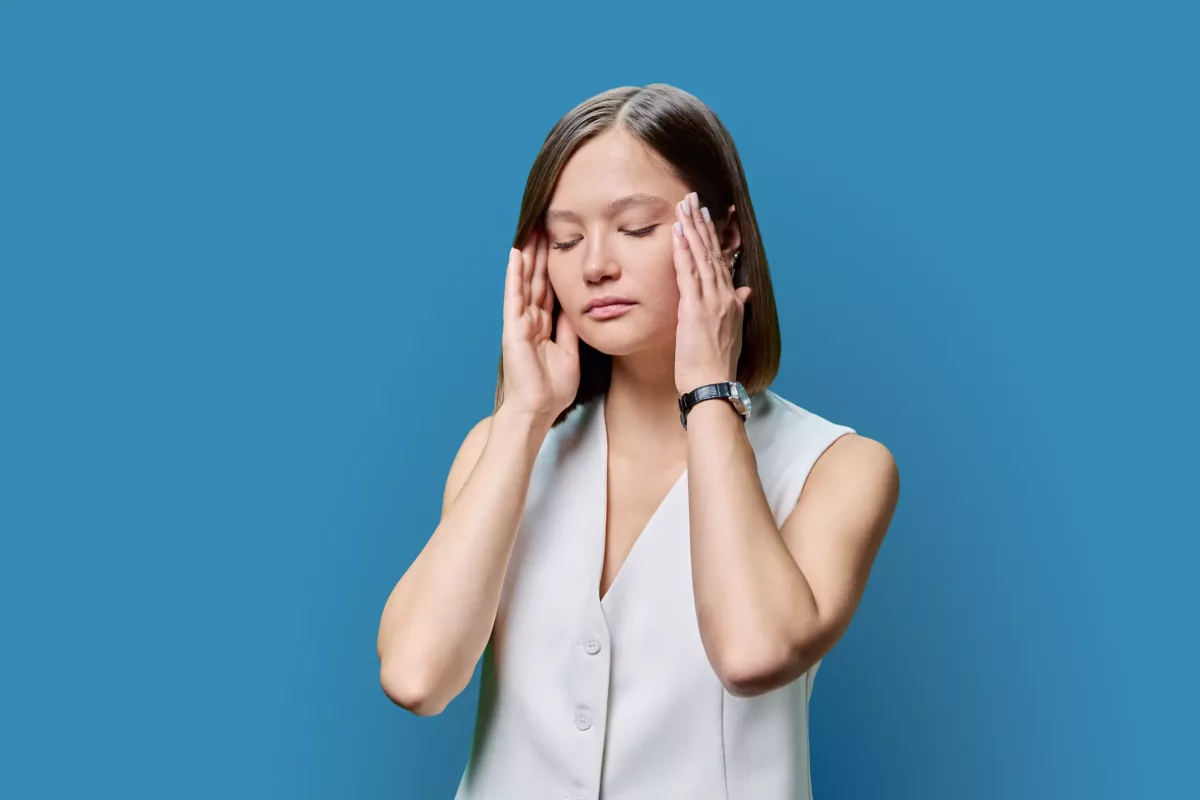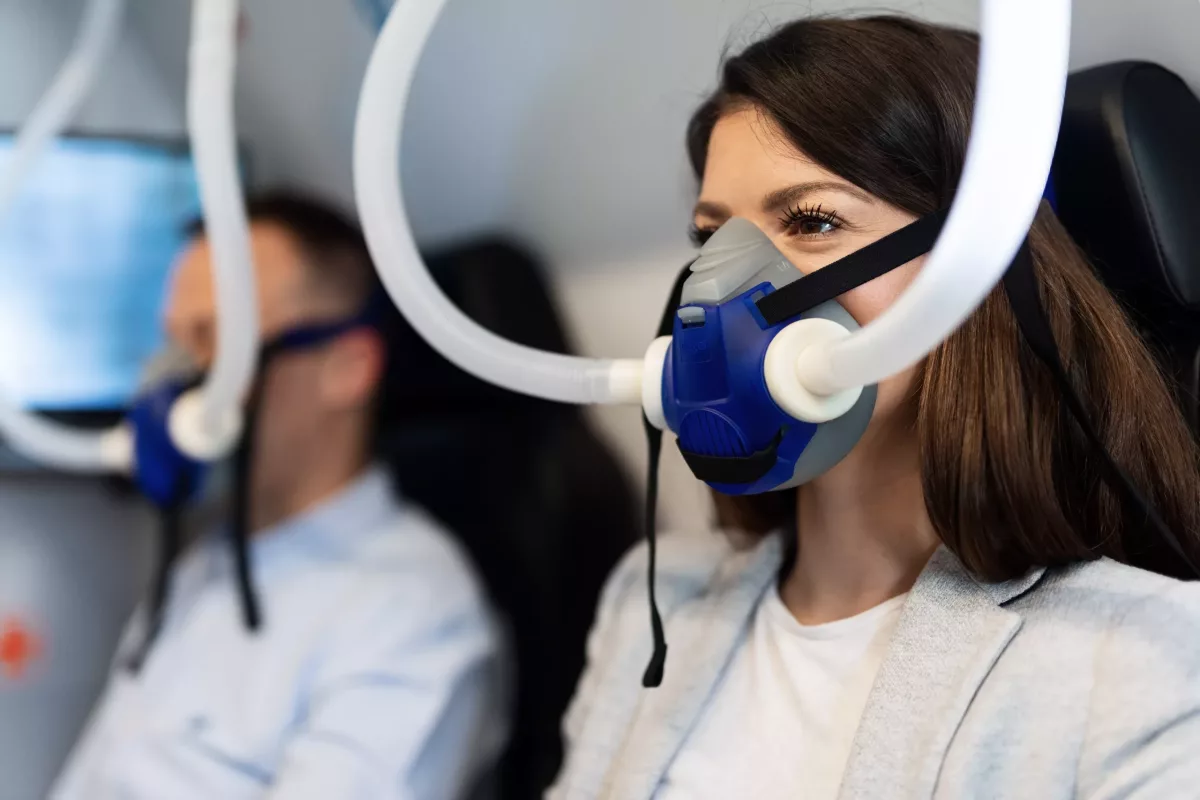A very painful headache type that usually happens in periods of attacks (clusters) is called cluster headache. The pain caused by this condition is so severe that it may wake you from sleep. Intense pain caused by cluster headache is usually localized in or around one eye and one side of the head.
This condition may last from a few weeks to months and then stop for years. However, this headache type occurs quite rarely. The treatment focuses on reducing the headache attacks and easing pain. Physicians may prescribe additional medicines to decrease the number of cluster headaches.
Symptoms
In most cases, this condition occurs quickly without any signs, but some people may experience migraine-like nausea and aura. Check below the most common symptoms of cluster headaches:
- Severe and sharp or stabbing pain in or around one eye. The pain may also spread to other areas (such as the head and neck).
- Pain on one side of the head
- Restlessness
- Tears
- Eye redness
- Runny or stuffy nose
- Sweating
- Skin color changes
- Swelling
- Drooping eyelid
Cluster Periods
In most cases, a cluster lasts for a few weeks to months. Moreover, each cluster period begins at about the same time of year and lasts the same length of time. For instance, these clusters can come only during specific seasons (such as every spring or fall).
Most people who experience cluster headaches the periods that last from one week to a year. Thereafter, a pain-free periods occurs (also known as remission) that usually last at least 3 months until the next cluster headache appears. In such cases, the condition is called episodic cluster headache. When cluster headaches last more than one year without remission, the condition is called chronic cluster headache. During a cluster period:
- Headaches appear suddenly and every day (sometimes multiple times per day)
- Generally, a single attack lasts from 15 minutes to 3 hours. However, in most cases, it lasts between 30 and 45 minutes.
- The attacks happen at the same time each day.
- Most times, attacks happen during nighttime, usually, 1-2 hours after bedtime
In any case, the pain disappears suddenly as it occurs, but people are exhausted despite the pain going away.
It is advised to see a doctor if a cluster headache begins to exclude other health conditions and recommend treatment. Not every time, cluster headaches are a symptom of another disease. However, some people experience this condition due to weakened blood vessels (also known as dissection), a brain tumor or tear, and other serious health conditions.
You should seek emergency care if any of the following symptoms occur. Examples include:
- A sudden and severe headache
- The headache happens along with fever, nausea, vomiting, a stiff neck, confusion, numbness, seizures, or speaking problems. It may indicate a stroke, meningitis, encephalitis, brain tumor, or other conditions.
- Headaches that worsen over time
Causes
Healthcare providers cannot determine the exact cause of cluster headaches. However, they think patterns of cluster headaches are linked with the hypothalamus (a brain part responsible for the body’s biological clock).
It is advised to avoid alcoholic drinks and certain medicines because these may trigger a cluster headache. Moreover, weather changes may also trigger the condition. This article does not contain all possible triggers of cluster headaches. For more details, discuss it with your healthcare provider.
Risk Factors
Physicians identified some factors that could elevate your risk of developing cluster headaches. Check below some examples:
- Sex – Males are more prone to develop this condition than females.
- Age – This condition mostly occurs in people between 20 and 50 years old. However, it may occur at any age as well.
- Smoking – In most cases, people with cluster headaches are smokers, but smoking cessation does not stop these headaches every time.
- Alcohol – People with this condition should not drink alcoholic beverages because they may trigger an attack.
- Family history – People who have a parent or sibling with cluster headaches are more likely to develop them.
Diagnosis
The diagnosis depends on how the patient describes the pain, where it is located, and how bad it is. However, the duration and frequency of cluster headaches are also important. Usually, this condition is diagnosed by a neurologist based on the medical history, symptoms, and outcomes of the physical and neurological examinations. Healthcare professionals may perform additional tests for people with complicated or abnormal headaches. Check below some examples:
- MRI (magnetic resonance imaging) scans – This test uses a magnetic field and radio waves to make detailed images of the brain and blood vessels. It may help determine a stroke, tumor, bleeding in the brain, infections, and other nervous system diseases.
- CT (computerized tomography) scans – This imaging test uses X-rays to make detailed cross-sectional pictures of the brain.
Previous tests can identify the exact cause of cluster headaches and exclude others that cause similar symptoms.
Treatment
Unfortunately, cluster headaches cannot be cured, but with proper treatment, you can reduce the pain and duration of the headache period or prevent a new attack. Usually, it is challenging to treat a cluster headache because it comes and goes suddenly, which makes the treatment require fast-acting medications.
Fast-acting Treatments
The following treatments are used to stop a cluster headache once it happens. For example:
- Oxygen – A mask that delivers pure oxygen relieves pain most of the time. People often notice the effects of this treatment within 15 minutes. In general, this treatment does not cause any side effects, but it cannot be used for people with chronic obstructive pulmonary disease (COPD).
- Triptans – These medications are given as shots when cluster headaches occur. Sometimes, people use Sumatriptan (nasal spray) or Zolmitriptan (which does not work as quickly as shots). Furthermore, Sumatriptan should be taken by people with uncontrolled hypertension or heart disease.
- Octreotide – This is the synthetic form of a brain hormone called Somatostatin. It comes in a shot and can be used when triptans do not work well.
- Local anesthesia – Some people get relief from cluster headaches with Lidocaine. A medicine that causes a numbing effect.
- Dihydroergotamine – When this medicine is given through a vein, it may lessen the pain caused by a cluster headache. However, this medicine also comes in a form that can be inhaled through the nose.
Preventive Treatments
The goal of the following treatments is to stop the attacks during the onset of the cluster period. However, you should gradually stop using the medicines when the cluster headache ends. Check below some examples:
- Calcium channel blockers – This group of medicines is used to prevent cluster headaches. Physicians usually recommend Verapamil. Generally, this medicine does not cause problems, but some people may experience the following adverse reactions. For example, nausea, tiredness, irregular heartbeat, and constipation.
- Corticosteroids – Healthcare providers usually prescribe Prednisone because it helps relieve cluster headaches quickly. They can prescribe Prednisone along with Verapamil as relief until long-acting medicines begin to work. However, it is not advised to take corticosteroids for long periods because they can cause severe negative effects. For example, diabetes, hypertension (high blood pressure), osteoporosis, and others.
- Galcanezumab – The FDA (Food and Drug Administration) has approved this medicine for episodic cluster headaches. It is given to the patients as a monthly shot until the cluster headaches disappear.
- Lithium – Generally, this is a medicine used to treat bipolar disorder. However, it may be used to prevent chronic cluster headaches. Physicians usually prescribe it for people with cluster headaches when other treatments do not work. The most common adverse reactions include kidney problems, increased thirst, and tremor.
- Noninvasive VNS (vagus nerve stimulation) – This treatment uses a handheld controller that delivers small electrical impulses to the vagus nerve. Some research suggests noninvasive VNS helps decrease the frequency of cluster headaches, but more research is needed.
- Nerve block – It comes as shots that help relieve pain. This shot contains numbing medicine that goes around the occipital nerve. Blocking the occipital nerve may help lessen pain until long-acting medicines start to work.
Surgery
In rare cases, surgery can help relieve pain when medicines and other treatments do not work. There are some surgeries that try to damage the nerve pathways that cause pain. Unfortunately, these surgeries carry multiple risks and may cause serious complications. For example, jaw muscle weakness, loss of feeling in certain parts of the head or face, and others. Discuss with your doctor about the risks and benefits of these surgeries.
Frequently Asked Questions
What is the cause of cluster headaches?
Experts do not fully understand why it happens, but have identified some triggers of cluster headaches. For example, alcoholic drinks, smoking, weather changes, and others. For more details, discuss it with your physician.
What can be mistaken for cluster headaches?
Some health conditions can be mistaken for cluster headaches. These include:
- Migraines
- Tension headaches
- Trigeminal neuralgia
- SUNCT
- Sinus headaches
- Paroxysmal hemicranias
- Temporomandibular joint (TMJ) disorders
That’s why you should visit a doctor for a diagnosis when experiencing painful headaches.
What are the possible complications of cluster headaches?
People with this condition may experience some complications, especially if they do not get treatment. Examples include:
- Heart disease
- Neurologic diseases
- Migraine-like aura
- Loss of movement or sensation
- Sleep disorders (such as insomnia)
- Mental disorders (including depression, anxiety, suicidal thoughts, and others)
- Drowsiness
- Vision changes
Ask your healthcare provider if you have additional questions.




